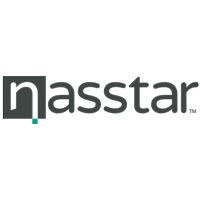Nasstar Plc (LON:NASA) Chief Executive Officer Nigel Redwood caught up with DirectorsTalk for an exclusive interview to discuss their latest interim results.
Q1: Another period of growth for Nasstar, can you talk us through the highlights for the first half of the year?
A1: I guess from a financial perspective, we’ve progressed and grown with EBITDA growth as a key one so 6% organic growth from a revenue perspective but more importantly, we’ve seen a 33% growth in EBITDA compared to the same period last year. That’s really come about as a result of our Nasstar technology and strategic initiatives which was a programme that we’d launched last year to really drive the integration of the businesses that we’ve acquired since 2014.
Q2: What are the main factors that have driven growth and how will you continue to drive this growth going forward?
A2: The main factors are a combination of two. We have a strategy that really focusses on upselling more services into the current customer base, one of the key strategies of our acquisitions over the years has been about getting a true end-to-end service capability. This means that we can not only host and manage all the applications on behalf of a client but also put a professional service wrapped around that, do the wide area networking, do the telephony, do the actual physical computes. So, a big area of growth is about upselling all those different lines of services to the customer base.
Also, organic focus on new customers, what we’re seeing is growth of the size of customer that is interested in our type of solutions. So, last year in September, we announced a 1,000-user opportunity that we closed, and we continue to see opportunities of that nature in the pipeline too.
Q3: Nasstar 10-19, how are you progressing on that front?
A3: Nasstar 10-19, that is all about the integration of the business and it comes in a number of what we call priority pillars.
One is around having the right team and the right leadership in place and so, we did a lot of that work last year in terms of making sure we’ve got that team integrated.
Technical consolidation is obviously important, we closed our Singapore data centre this year and moved those into Azure and we’ve got another two UK data centres to close.
We do a lot of our own talent management and attracting the right level of talent and making sure they’ve all got career plans, so we put a lot of investment into health and wellbeing, training and career plans.
We’ve invested in the security aspect of our business, the data we hold for clients is as valuable as the cash in the bank, so we have to act and operate like a bank so a lot of investment in that area.
We’ve made investments in terms of the product strategy, launched a new host of telephony products. Also, investment into the account management side in terms of how we manage the larger clients but then also the smaller clients, we’ve now got a desk-based account management team to look after the smaller clients and then automating systems in the back end is another focus.
So, it’s a big programme, Nasstar 10-19, but ultimately it will have the right results.
Q4: You’ve also invested in engineering resources, what’s that enable Nasstar to do?
A4: Two reasons for investing in what we’re calling the ‘technical delivery team’ i.e. the team that onboards new clients.
One is because of the new IRFS accounting standards, we can no longer recognise set-up consultancy in the month that the set-ups are done and that consultancy and the revenues on that now get spread over the full term of the contract so that could be spread over 36 or even 60 months. Certainly, in order to deliver revenue growth, we’ve got to on-board customers much more quickly now because we don’t see that one-off boost from consultancy.
The second reason for investing in that team is because of those larger more complex projects that we see coming through the pipeline, it means that that delivering team needs to larger as a result of that.
Q5: How do you view the remainder of the year and beyond?
A5: Very positively, as ever. I feel that we really are uniquely placed as an investment case, we’re a true managed service provider with world-quality revenues, 91% of recurring revenues in that real complexed managed hosting. It’s not a commodity sale and we haven’t got lots of networking in there.
As a result, the future predictability of the business is very strong, visibility of earnings is very strong, we’ve got clear visibility of how we will increase margins so continue to stay very positive as a result.





































